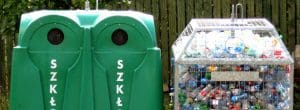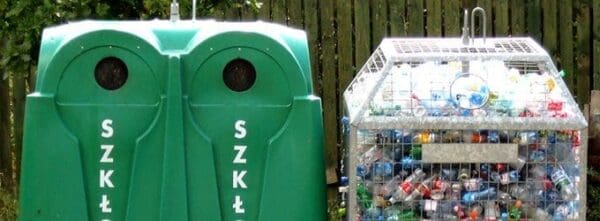Everyone is away of their carbon footprint. We all know that we should be doing more to limit the damage that we do to the environment, but what do you do? It’s difficult to know where to start and short of selling your car for an electric one (or better yet, a bike), installing solar panels and growing all your own food, there’s not much we can do that doesn’t involve a radical change of lifestyle.
We’re here to tell you that’s wrong. In this article we have 5 different ways to benefit the environment, without breaking the bank, selling your car or getting onto you roof.
Recycle
Recycling is a no brainer. It’s one of the best ways that you can limit the damage that you’re doing to the environment. The amount that the UK recycles is showing a healthy, upward trend thanks to the increased diversity in the UKs recycling facilities and availability.
Familiarise yourself with your county’s recycling and waste management facilities to ensure that you are recycling everything that can be re-used.
Buy less packaging
Have you ever come home from your weekly shop and thought about how much packaging you have bought? Everything from meat to bread comes in unnecessary, non-recyclable packaging that ends up in the bin.
Do the planet a favour and purchase the products with the most recyclable packaging materials available. You can take this a step further by buying locally grown and produced food from your local farmers market and butcher. Not only will this produce be a higher quality, often cheaper alternative but it will also come with less wasteful packaging and won’t have travelled hundreds of miles to get to you.
Drive better
Buying an electric car is not an option for some people. They can be expensive and restrictive to a point where the negatives massively outweigh the positives for the vast majority of people. If you’re tied to a combustion engine until things change, we’ve got a few ways to improve your petrol consumption.
By properly inflating your tires, you are improving and reducing your wheel’s ‘rolling resistance’. This is the amount of energy it takes to rotate the wheel – a flat tire is much harder to roll than a well inflated one. Insuring that your tires are well inflated will result in your car requiring less energy to move, thus improving fuel economy.
Sharing your car if you live near a colleague effectively halves your carbon output from driving for both of you. It’s a great way to reduce your footprint and save some money at the same time, as well as giving you a little extra free time to catch up with colleagues, work or a book.
Smooth driving is the easiest, most fuel efficient way to drive. Accelerating smooth, steady and breaking with plenty of time puts less energy into getting moving and stopping and will hugely improve your fuel consumption and lower your fuel costs.
Reduce your energy consumption
Ultimately, a reduced carbon footprint comes down to reducing the amount of energy we use. Whether that energy is locked in the products we buy, consumed through fossil fuels or supplied by the grid, we should always look to use as little as possible.
Turn off your lights; it’s a simple measure that becomes habit after a few weeks. Turning off your lights when you’re not in the room is a great way of reducing your energy bill and carbon footprint. Swapping to LED bulbs will also lower their power consumption when on!
Limit your use of heating. Heating (or cooling) a large indoor space is an energy intensive task that is probably eating up the majority of your energy bill. Turn off your heating when you’re not in your home, turn it down by a few degrees and utilise the sun and night time as a way to heat and cool your home.
Turn off unused appliances. Unused devices are often overlooked and it’s forgotten that they’re slowly sapping energy without being used. Phone and laptop chargers, devices on standby and damaged appliances can be adding pennies to your bills and taking time from the environment. Make sure that all your devices are off at the wall and free from damage.
Reduce your water consumption
Water is water; it doesn’t go anywhere does it? Strictly speaking, water is not a resource that we should be concerned about wasting, it’s unlikely that we’ll run out. However, the human race puts a lot of energy into cleaning, transporting and using water as a resource; wasted water has more energy spent on it in the system later on.
Showering is the most common way to reduce your water usage. Showering is faster, better for the environment, cleaner and takes up less room than a bath! All of these benefits save the planet and save you money every month.
Catch used water for the garden. Grey water, as it’s called, is the water used in kitchen appliances and is often safe for use in your garden. Save your grey water during the summer months to re-use on your plants and lawn as an environmentally friendly and cheap way to water your garden. Installing water-butts bellow gutter downpipes is also a great way to save rain water for future summer use during the wet season.





